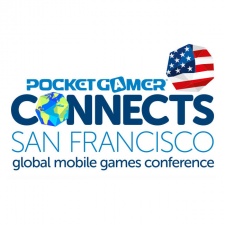Marking our first conference in North America, Pocket Gamer Connects San Francisco is happening on 7-8 July at The Village.
And tickets are still available.
So to give you a hint at what you can expect, we're shining the spotlight onto our speakers to provide a deeper look at the personalities who will be taking the stage.
Jeff Gurian is senior director of marketing at GameStop-owned gaming platform Kongregate.
PocketGamer.biz: What do you think has been the biggest story in the mobile gaming industry of 2015 so far?
Jeff Gurian: From a marketing perspective, the use of TV and its seeming success as an acquisition channel has been an interesting story this year.
The primary users typically have deep pockets, but it's starting to gain traction with smaller developers who have the budget and stomachs to dip their toe in the water.
I think the jury is still out on its long term viability. However, with better tools to measure impact, it is less of a black box than it has been in the past.
We're starting to see the growth in mobile gaming revenue slow down in western markets, while in most Asian countries it's still very high. Is this changing the way you approach the sector?
There are lots of games that have come from East to West in recent years, though only a few have found massive success. The demographics and interests of gamer are simply different across the globe.
I think the jury is still out on TV advertising's long term viability.Jeff Gurian
There might be a move from West to East, but Western developers will face similar challenges of building titles for gamers they might not completely understand.
From a marketing perspective, we keep an open eye on the performance of any game across all markets and stay prepared to pivot as needed.
Brands and celebrities continue to get more important. Is this a good thing for mobile gaming?
Brands can be a blessing and a curse. The blessing is obviously name familiarity which leads to organic traction and cheaper acquisition costs.
The curse is these fan pools are finite. Once you get beyond the core followers of a brand, you can expect to reach the fringe audience. Although, acquisition costs will start to increase by this point. Once this pool becomes saturated, costs increase further and the value of having a brand name diminishes rapidly.
The work behind making a branded title successful can be the same as a non-branded game by simply building a great game. Brands can draw people in, but the game itself needs to captivating enough to keep gamers playing.
There's lots of hype about wearables, VR and AR at the moment. Do they excite you as gaming platforms?
As a gaming enthusiast, certainly. It is a bit too early to see how they will disrupt the current mobile gaming landscape though.
If they are not made into on-the-go technologies, it's hard to see them disrupting out-of-home mobile gaming that frequently happens at work, on the bus, etc.
What's been your favorite game of 2015 so far. Why?
Does Not Commute by Mediocre. The graphics are great, it's easy to learn and difficult to master.

It has an interesting run-based strategy mechanic where routes selected early in the game are saved and directly impact the routes chosen later.
To be effective, the player has to weigh short-term efficiencies relative to long-term goals.
What can you reveal about the talk you're giving at Pocket Gamer Connects San Francisco 2015?
I will be discussing what I call 'Dark Metrics' in mobile marketing.
These are the important elements that significantly impact your spend and volume, but things that few developers are asking of their marketing partners.
What are you most looking forward to at Pocket Gamer Connects San Francisco 2015?
Networking, insights, and experiences from others in the marketplace.






















